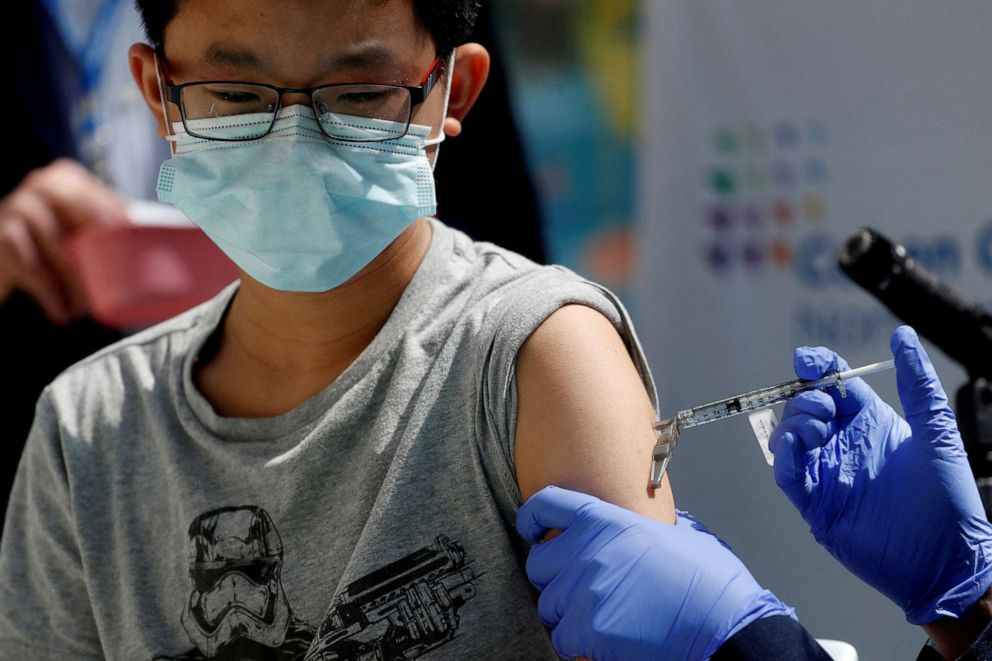CDC recommends Pfizer boosters for 12- to 15-year-olds; 1st shots as early as Thursday
The first shots will go into arms as early as Thursday.
The Centers for Disease Control and Prevention recommended Pfizer boosters for adolescents ages 12 to 15 on Wednesday night, paving the way for the first shots to go into arms Thursday morning.
The Food and Drug Administration authorized the Pfizer boosters on Monday, paving the way for CDC's final green light, and a CDC panel of experts voted to recommend them after reviewing data on Wednesday. The final signoff from CDC Director Rochelle Walensky came a few hours later.
Because the CDC doesn't require vaccinated and boosted people to quarantine after exposure, the availability of booster shots to 12- to 15-year-olds could have a big impact on keeping kids in school during the winter surge.
Boosters for young adolescents may "reduce the potential for a child to be positive or to be infected," said Dr. Amanda Cohn, senior adviser for vaccines at CDC's National Center for Immunization and Respiratory Diseases, and could have "an immeasurable impact on the well being of these kids."
"This is one tool in our toolbox," said panel member Dr. Oliver Brooks, chief medical officer at Watts HealthCare Corporation. "It's a hammer, we should hit that nail hard."

Still, the CDC panel on Wednesday emphasized that more effort should be put into initial vaccines, since nearly one-third of 12- to 17-year-olds have yet to receive their first shots -- which plays a large role in transmission in schools, as well as high rates of pediatric hospitalizations as omicron hits the unvaccinated.
The focus should still be aimed at getting those unvaccinated kids vaccinated, said Dr. Helen Keipp Talbot, a panel member and medical professor at Vanderbilt University.
"Boosters are incredibly important but they're not going to solve this problem of the crowded hospitals. That's the unvaccinated," Talbot said.
According to the CDC, unvaccinated 12- to 17-year-olds had an 11 times higher risk of hospitalization than fully vaccinated adolescents.
The Pfizer vaccine, the only vaccine authorized so far for the 12- to 15-year-old age group, was authorized in May, meaning the adolescents were first able to line up for their shots nine months ago.
The FDA and CDC have recommended Pfizer booster shots be administered five months after the primary vaccine series.
The CDC said Wednesday that immunity for 12- to 15-year-olds does in fact wane like it does in older people, making booster shots a significant tool, though initial vaccine efficacy for 12-to 15-year-olds starts out higher than older adults.
Boosters have also shown to drive back up protection against omicron that was evaded in the first two vaccines by the variant's many mutations. With a booster shot, studies have shown protection can reach 80%, and any breakthrough infections are largely very mild.




